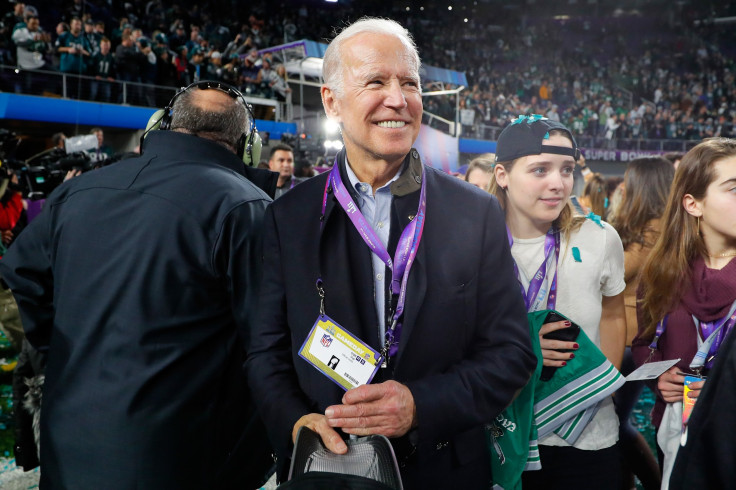US Presidential Election 2020 Poll: Joe Biden Leads Democratic Race

Joe Biden, the former Vice president leads the pack of 2020 potential Democratic aspirants in the presidential primary race, according to the NBC News/Wall Street Journal poll.
The poll covered 800 registered voters from July 7-9 also reminds that changes in choice are possible as there is a long way to go.
The survey was undertaken soon after the first Democratic debate in Miami. It showed only 12 percent of respondents have made their final choice on whom to support.
Nevertheless, Biden is away ahead of other aspirants and wrested the support of 26 percent of voters nationally who would vote in the 2020 Democratic nominating contests, the survey released on Thursday said.
Senator Elizabeth Warren is closely behind him at 19 percent.
There is an equal measure of support for Senators Kamala Harris and Bernie Sanders at 13 percent, according to the poll. The top 5 contenders list ends at South Bend Mayor Pete Buttigieg who got 7 percent support.
Beto O’Rourke and entrepreneur Andrew Yang have garnered only 2 percent support.
Biden, who drummed up a substantial lead in early polls has been pushed into a tighter contest after the first Democratic debate in June that brought more voters into the field.
For a second choice on the president, 14 percent of respondents chose Harris followed by Warren (13 percent) and Sanders at 12 percent.
Harris and Warren impressed after the first debate
The Miami debate boosted the standing of Harris and Warren, the survey found.
Nearly 47 percent of Democratic primary voters who watched the debates and news coverage admitted that Harris impressed them. Only a third of respondents said Warren emerged well.
Harris, one of three non-white candidates in the field created the biggest moment during the debate as she took on Biden for his stance on race and school busing policy.
In terms of support from ethnic groups, Biden leads among African-American Democratic primary voters, which the poll puts at 46 percent followed by Harris at 17 percent.
Biden has 33 percent of support among non-white primary voters while Harris has 16 percent, Sanders 15 percent, and Warren 14 percent.
The main differentiator influencing the choice of the candidate among Democratic primary voters’ was a commitment to bring broad overhauls in the system Vs incremental changes.
While Sanders and Warren bats for a single-payer “Medicare for All” system and massive student debt waiver Biden and others are against universal Medicare for All or debt forgiveness citing them "expensive."
Nearly 54 percent of Democratic primary voters want their candidate to propose larger-scale policies. That may cost more and harder to pass into a law but they want major changes in areas like health care, climate change, college affordability, and economic opportunity.
More than the ability to beat Trump and deny him a second term in the White House, a majority of Democrats' primary voters (51percent) said they want ideological synergy as a critical factor in their choice of a candidate.
Only 45 percent said they want a candidate with the best chance to defeat Trump.
Among the best candidates found capable of beating Trump, 34 percent of respondents preferred Biden, followed by Warren at 21 percent and Harris at 16 percent.
Biden unveils doctrine on foreign policy
Meanwhile, Biden on Thursday released a foreign policy document that painted a stark picture of an unstable world made more unstable by the Trump administration's “America First” approach.
Summing up Trump’s current outlook, Biden said it represents a lack of trust in institutions and a fear of the other.
Together they have risen to dangerous resurgences of extreme nationalism, illiberalism, protectionism, and xenophobia.
Biden's foreign policy agenda assures rebuilding global alliances that Trump undermined to push forces of authoritarianism, climate change, and other threats.
© Copyright IBTimes 2025. All rights reserved.





















